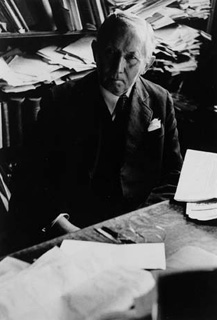 WILLIAM KURRELMEYER, A&S 1896, 1899 (Ph.D.), who joined the Hopkins faculty in 1900 and remained for more than 40 years, molded the German program, and made Hopkins an international center for German scholarship. Dr. Kurrelmeyer’s fields of study included the history of aesthetics, lyric poetry, narrative theory, and the periods of Romanticism and the Enlightenment. Much of his scholarship concentrated on the works of Goethe, Kleist, and Nietzsche. A discriminating book collector, he acquired nearly 25,000 volumes, which he eventually donated to the Eisenhower Library.
WILLIAM KURRELMEYER, A&S 1896, 1899 (Ph.D.), who joined the Hopkins faculty in 1900 and remained for more than 40 years, molded the German program, and made Hopkins an international center for German scholarship. Dr. Kurrelmeyer’s fields of study included the history of aesthetics, lyric poetry, narrative theory, and the periods of Romanticism and the Enlightenment. Much of his scholarship concentrated on the works of Goethe, Kleist, and Nietzsche. A discriminating book collector, he acquired nearly 25,000 volumes, which he eventually donated to the Eisenhower Library.
Return
to All Schools